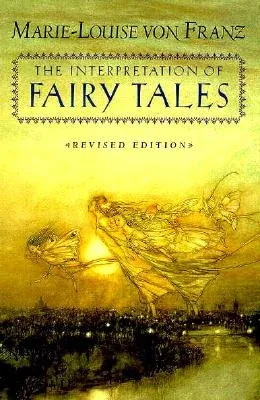Marie-Louise Von Franz
(Author)The Interpretation of Fairy TalesPaperback, 9 July 1996

Qty
1
Turbo
Ships in 2 - 3 days
Only 5 left
Free Delivery
Cash on Delivery
15 Days
Free Returns
Secure Checkout

Part of Series
C. G. Jung Foundation Books
Print Length
224 pages
Language
English
Publisher
Shambhala
Date Published
9 Jul 1996
ISBN-10
0877735263
ISBN-13
9780877735267
Description
Product Details
Author:
Book Format:
Paperback
Country of Origin:
US
Date Published:
9 July 1996
Dimensions:
21.54 x
14.17 x
1.65 cm
ISBN-10:
0877735263
ISBN-13:
9780877735267
Language:
English
Location:
Boston, MA
Pages:
224
Publisher:
Series:
Weight:
294.83 gm